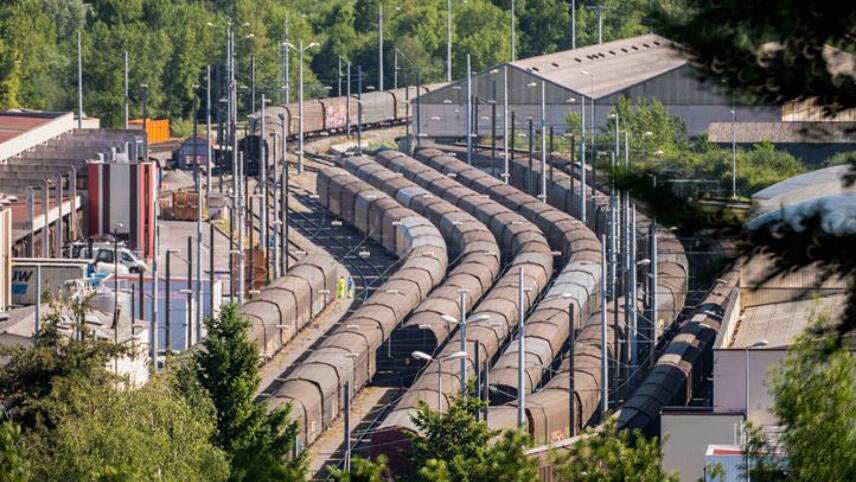Register for free and continue reading
Join our growing army of changemakers and get unlimited access to our premium content

Trains at the Evian facility
Evian has achieved certification to the internationally recognised carbon-neutral standard PAS 2060, which has been issued by the Carbon Trust.
The brand first set an ambition to become carbon neutral at the COP21 conference, during which the Paris Agreement was announced. Evian has previously achieved carbon neutrality in the US, Canada, Germany, Switzerland and its bottling site located in Publier near Evian-les-Bains, France. The company has since reached the status across all countries it has a presence in.
Evian’s global brand VP Shweta Harit said: “Today’s announcement comes at a moment when we are seeing, in real time, what can happen when we reduce our impact on the planet. Emissions are lower and pollution levels have dropped.
“Lessening our environmental footprint is at the core of everything we do at Evian, and that is why today’s announcement is so important for us. The current health crisis provides us all with a renewed impetus to do more and create long-lasting change, and it has been heartening to see the world come together.”
Evian achieved carbon neutrality at the France bottling site in 2017, becoming the first Danone production facility and largest food production site in France to do so. The company committed $280m into upgrading the facility and it is now powered by 100% renewable energy. Between 2015 and 2019, the facility has reduced its carbon emissions by 90%.
The company now transports 50% of its production volume by train from the facility, which is also delivering cuts to carbon emissions. To deliver to the UK for example, the train carbon footprint is now seven times lower than trucks, the company has confirmed.
Evian has also implemented numerous measures to improve the carbon footprint of its bottles. The company has lightweighted its 1.5L bottles to deliver a 17% reduction in the bottle’s carbon footprint between 1993-2018. Evian has also incorporated recycled plastic (rPET), to the point where 30% of its range is now made from the recycled material, including some bottles made from 100% rPET. According to Evian, rPET can save up to 50% of carbon emissions over a traditional virgin plastic bottle.
The company is set to launch a new range of “bottles made from bottles” using 100% recycled plastic, later this year.
Evian has also partnered with the Livelihoods Carbon Fund to help restore natural habitats. To date, Evian has worked on the plantation of 13 million trees to offset the brand’s remaining emissions.
Matt Mace


Tricky one, this. There are clearly some good initiatives there, but for countries where the tap water is safely potable, isn’t there something fundamentally unsustainable about shipping water in from the French Alps? I fear that this really boils down to greenwash of the whole product.
Ian I agree wholeheartedly. And in addition to shipping water around the world, there are the unintended externalities which are difficult to control like the dumping and burning of plastic waste, sometimes as a fuel that the desperate poor use just to keep warm. Rather than look at operations piecemeal Danone could look at the whole, from sourcing through to use and re-use. But first and foremost in the post Covid world to revisit the question, why does the world need us? What would be missed if we did not exist? And start from there.